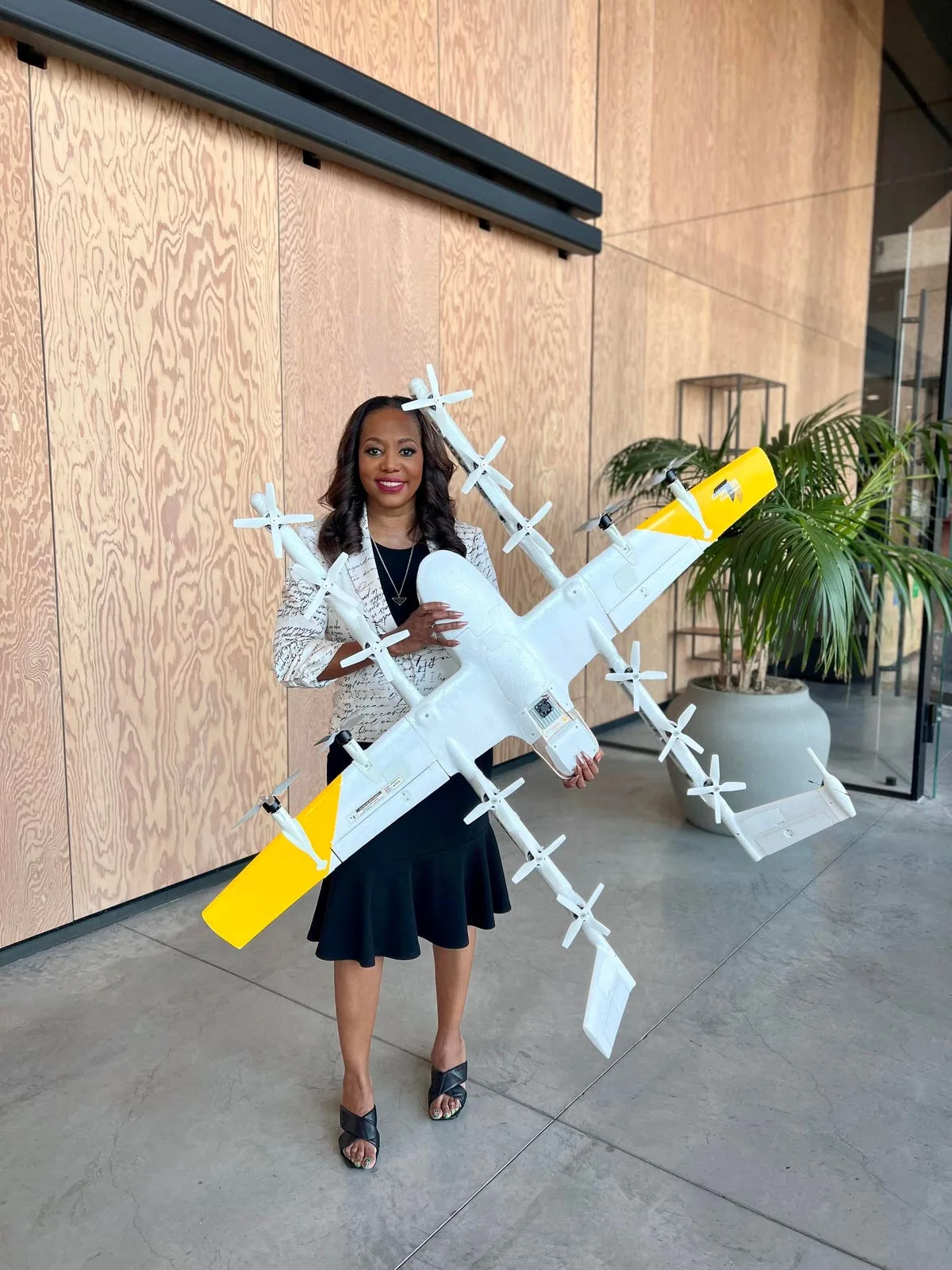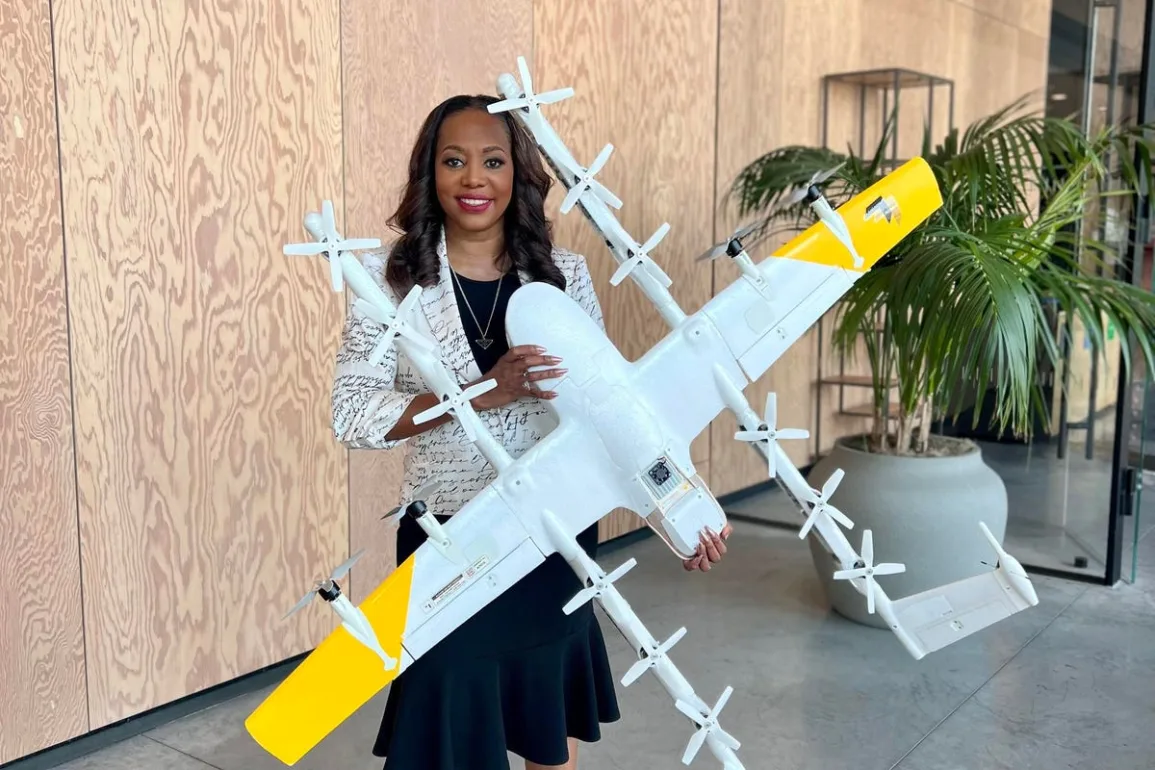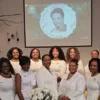
Recently, I sat down with Shannon Nash, CFO of Wing, to hear about her remarkable achievements–from finance leader to filmmaker–and what they reflect about the changing face of finance leadership. Shannon is not your typical CFO. Driven by a strong intellectual curiosity, she started her career as a tax accountant but is also a lawyer, a board member, investor, and most recently, a documentary filmmaker, in addition to her role as finance chief of one of technology’s most high-profile companies. Highlights of our conversation are below.
Wing is one of the most interesting companies I’ve come across. What can you share about the company?
Wing is a commercial drone delivery company. We’ve built a highly automated delivery system that, at scale, we think will be cost-effective for last-mile delivery of small -packaged goods. We’re a subsidiary of Alphabet, which is Google’s parent company. We’ve been operating on three continents, including the U.S. and Australia. We’ve done over 350,000 commercial deliveries of small packages, things like household goods, meals, over-the-counter medicines and coffee.
The name of the show is “Secrets of Rockstar CFOs,” but you’re more Renaissance woman than rockstar in a lot of ways. How do you find the time to do everything that you do?
I am a mom and a partner to my husband, Bill. That is my number one responsibility on this earth. My biggest role in life is to turn my three kids into productive members of society. Everything else brings me a lot of joy, but that is what I must get right. This is not easy, but it’s also a privilege. We have all of our various family events and calendars overlaid. Organization is key. It is also important to have support.
Tell me about your journey from tax accountant to law school to becoming a CFO.
Earlier on in my career, I got the ability to practice tax and corporate law. I wanted to look at the numbers and the deal while everybody else was looking at the legal language. I was able to go in-house to a company called Amgen, which is a biotechnology company. That gave me exposure to corporate America and how a finance department works. I got the opportunity to see that at Amgen and understand how companies think about their global marketing and how they globally go to market because I got to be an expat in Switzerland and help with opening up the territories in Europe when I worked there.
All of that led me to steer myself back into finance because my first love was accounting. I became a CPA at a young age. I did love accounting, but I also had a father who wanted me to go to law school. I liked it, but I always loved accounting and finance from the beginning. That stuff was always interesting to me. When I got the opportunity to come back to those roots, I jumped at it.
Almost all of the CEOs with whom I speak have had a mentor, formal or informal, who made a positive impact on their career growth. Did you have any experiences like that?
I don’t think it’s possible for anybody to make it to the C-Suite without having a mentor, supporter or sponsor. There’s a gentleman by the name of Larry Bailey, who is a CPA. He went to Wharton Business School at a time when there were few African Americans doing that. He became one of the first African American partners at a major accounting firm. Larry has helped countless professionals as a mentor, supporter and sponsor, especially when I was in school in the late ‘80s and early ‘90s. If you go through all the ‘80s and ‘90s, there are hundreds of people who would raise their hand and say, “I have been mentored and sponsored by Larry.”
You are one of the few Black women who are CFOs today. What can you pass on to the next generation of leaders?
I’m spending a lot more of my time trying to mentor and help other professionals, because I think it’s important that people see a representation of folks who look like them. That’s why it’s also important to me to continue to advocate for board diversity. Many of these opportunities are all about being in a network. The predominant way to get on a board seat is because you’re in somebody’s network. When I think about what I want to focus my energies on over the next whatever years, it’s making sure I try to help as many people get into networks and get a shot to be seen.
What attracted you to the role at Wing?
I was truly a kid of the ‘70s and was a dreamer. “The Jetsons” was my favorite cartoon. When I heard about the Wing opportunity, the seven-year-old version of me got excited. What drew me to it was the mission of what Wing is doing. What kept me excited and continues to get me excited just like with most things is the people I get to work with, from our CEO to all of our C-Suite. It’s energizing to work around people who are smart but also get what we’re working for and enjoy working on this together. That’s a “let’s wake up and be excited every day to go to work” type of opportunity.
It’s imperative in your role as CFO that you adopt a growth mindset. How do you ensure you’re always part of the solution?
In many ways, that growth mindset is what your colleagues and co-C-Suite leaders depend on the head person in finance to do in order to get to the next milestone or scale. Your job as a CFO is to help them think creatively through that and understand how each option has various financial impacts. That’s my job. A big part of that is making sure that I spend a lot of time understanding their businesses and pain points. When you have that growth mindset as a CFO, you’re spending all of your time understanding every facet of the business.
In addition to being a CFO, Shannon is on three boards and recently produced her second file, … [+]
There isn’t a plethora of CFOs who moonlight as movie producers. What motivated you to pursue the path?
Earlier in my profession, I was the CFO of a production company. I understood how you brought projects to market and the operations of it very well. It was my passion when it was about a topic I cared deeply about. My first film was on autism. My husband and I have a 25-year-old with autism. The second film is about board diversity. It’s one of those things where I took the skillsets that I knew I had to get a film made, done, seen and all of those things. That is when it’s like a winning formula. I’ve seen the power of what storytelling can do in terms of motivating and helping people. When those things all line up for me, those are the projects I like to get involved in. At the end of the day, it’s for a bigger cause.
I know you and [your husband] Bill are raising a child with autism. What can you say to help parents, especially working couples, to help them navigate these challenges?
There have been plenty of periods in our career journey where we had to make choices and changes in our own aspirations because we had to do things for our family. We had to make moves and potentially not take a job because even though it looks like a good opportunity, it’s not a good opportunity for what you need to do for your child. I don’t want to paint a picture that there weren’t a lot of bumps in the road because there were quite a few bumps in the road. Having support from family and friends is critical. You start meeting other parents and families who also have children on the spectrum. You start sharing information, support and therapies. All those things help change a lot in terms of helping you navigate raising this child who has a different way of having to go about some of the most ordinary things for others.
The reality is all these stories are different. It’s a lot of work and disappointments that a lot of people don’t see when they see you day to day. For me, it was a lot of support and taking it one day at a time. That’s all you can do. As parents, we’ll do anything for our children.
You’re married to Bill Nash, CFO of autonomous vehicle company Cruise. He referred to you as a mentor in an interview with Fortune. Does that happen a lot in the Nash family dinners when you talk about your roles?
I feel like I hit the lottery on this one, to go through this life with a life partner. We both deeply care about a lot of the same things. He’s somebody that I can truly run something past, and there are no dumb questions to your spouse in the sense that he will certainly try to help me think through some of these problems and not make me feel any particular way. Or, he will call me out and say, “You need to get out of your feelings. This is not about you.” I can’t believe we are where we are now. We met each other early on in life. We went to the same high school. Sometimes, we sit back and laugh. We could have never predicted the life that we have now.
2023 has been a milestone for you. You are recognized as one of Ignition‘s 50 most influential women in accounting and are in the top 100 in Accounting Today. You’re also one of the most influential women in Silicon Valley. What has this recognition meant to you?
It’s humbling to get those awards and it’s nice to be recognized. At the same time, the focus is, how do I help? The saying is, “Lift as we climb.” How am I helping to lift? What am I doing to help other people in their journeys? You never know who’s inspired by what you say. I try to think about how I can be helpful to other people in their journeys.
That’s where my head is now. How can I be a good example? I’m rooting for many people to take it to the next level. Some of the proudest things that have happened to me professionally have been people who have worked for me and called me and said, “I became head of finance. I’m a CFO now too. I would love to keep talking to you and keep in touch.” I don’t think people realize when they call and tell me that, and they hang up, I have to take a walk around a little bit because those moments hit you hard. That’s what it’s all about.



